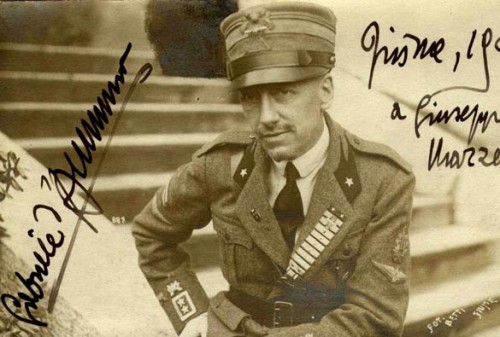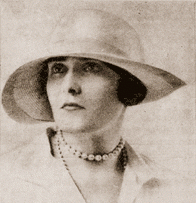Kerry BOLTON
Ex: http://counter-currents.com/
During October 19–22, 2010, Charles Rivkin, US Ambassador to France, invited a 29-member delegation from the Pacific Council on International Policy (PCIP) to a conference in France, the main purpose of which was to discuss Arab and Islamic relations in the country.[1] The meeting was part of a far-reaching subversive agenda to transform that entire character of France and in particular the consciousness of French youth, which includes the use of France’s Muslim youth in a typically manipulative globalist strategy behind the usual façade of “human rights” and “equality.”
Globalist Delegation at US Embassy
The PCIP report states of the conference:
. . . The delegation further focused on three key themes. First, the group examined Franco-Muslim issues in France through exchanges with Dr. Bassma Kodmani, Director of the Arab Reform Institute, and Ms. Rachida Dati, the first female French cabinet member of North African origin and current Mayor of the 7th Arrondissement in Paris. A trip to the Grand Mosque of Paris and a meeting with the Director of Theology and the Rector there provided additional insight. Second, meetings with Mr. Jean-Noel Poirier, the Vice President of External Affairs at AREVA (a highly innovative French energy company), and with Mr. Brice Lalonde, climate negotiator and former Minister of the Environment, highlighted energy and nuclear policy issues and the differences between U.S. and French policies in these arenas. And finally, the delegation explored the connections between media and culture in California (Hollywood) and France in meetings at the Louvre, the Musee D’Orsay, and at FRANCE 24 — the Paris-based international news and current affairs channel.[2]
The over-riding concern seems to have been on matters of a multicultural dimension, including not only Arab and Islamic relations in France, but perhaps more importantly in the long term, a discussion on the impact of Hollywood “culture” on the French.
The USA has long played a duplicitous game of “fighting terrorism” of an “Islamic” nature as one of the primary elements of its post-Cold War stratagem of manufactured permanent crises, while using “radical Islam” for it own purposes, the well-known examples being: (1) Supporting Bin Ladin in the war against Russia in Afghanistan, (2) backing Saddam Hussein in the war against Iran, (3) supporting the Kosovo Liberation Army in ousting Serbian sovereignty over mineral rich Kosovo, the KLA having been miraculously transformed from being listed by the US State Department as a “terrorist organization,” to becoming “freedom fighters.”
When US globalists pose as friends of Muslims, the latter should sup with the Great Shaitan with an exceedingly long spoon.
What is the Pacific Council on International Policy?
The PCIP of which Rivkin is a member was founded in 1995 as a regional appendage of the omnipresent globalist think tank, the Council on Foreign Reactions (CFR),[3] is headquartered in Los Angeles, but “with members and activities throughout the West Coast of the United States and internationally.” Corporate funding comes from, among others:
Carnegie Corporation of New York
Chicago Council on Foreign Relations
City National Bank
The Ford Foundation
Bill and Melinda Gates Foundation
The William & Flora Hewlett Foundation
Rockefeller Brothers Fund
The Rockefeller Foundation
United States Institute of Peace[4]
The PCIP is therefore yet another big player in the globalist network comprising hundreds of usually interconnected organizations, lobbies, “civil society” groups, NGOs, and think tanks, associated with banks and other corporations. As usual, there is a conspicuous presence by Rockefeller interests.
Why France?
France has long been a thorn in the side of US globalism because of its stubborn adherence to French interests around the world, rather than those of the manufactured “world community,” although the Sarkozy regime is an exception. However, France is one of the few states left in Western Europe with a strong national consciousness. The best way of destroying any such feeling — which translates too often into policy — is to weaken the concepts of nationhood and nationality by means of promoting “multiculturalism.”
Was it only coincidence that the 1968 student revolt, sparked by the most puerile of reasons, occurred at a time both when the CIA was very active in funding student groups around the world, and when President De Gaulle was giving the USA maximum trouble in terms of foreign policy? De Gaulle did little to play along with American’s post-war plans. He withdrew France form NATO command, during in World War II was distrusted by the USA.[5]
Of particular concern would have been De Gaulle’s advocacy of a united Europe to counteract US hegemony.[6] In 1959 he stated at Strasbourg: “Yes, it is Europe, from the Atlantic to the Urals, it is the whole of Europe, that will decide the destiny of the world.” The expression implied co-operation between a future Europe and the USSR. In 1967 he declared an arms embargo on Israel and cultivated the Arab world. This is the type of legacy that globalists fear.
With the buffoonery of Sarkozy, and mounting tension with disaffected Muslim youth, a backlash could see an intransigently anti-globalist, “xenophobic” regime come to power. In today’s context, what better way now to subvert French nationalism and any potential to revive as an anti-globalist force, than to use its large, unassimilated Islamic component, just as the Bolshevik revolution was undertaken to a significant extent by the disaffected minorities of the Russian Empire?
Of interest also is the concern this delegation had for the influence of Hollywood on French culture. This might seem at first glance to be an odd concern. However, Hollywood, as the economic symbol of globalist cultural excrescence, is an important factor in globalization, in what amounts to a world culture-war. Ultimately the goal of globalism is not to promote the survival of ethnic cultures and identities, but rather to submerge them into one big melting pot of global consumerism, to uproot every individual from an identity and heritage and replace that with the global shopping mall, and the “global village.” Therefore multiculturalism should be viewed as the antithesis of what it is understood as being.
So far from the global corporates wanting to promote so-called multiculturalism in terms of assuring the existence of a multiplicity of cultures, as the term implies; it is to the contrary part of a dialectical process whereby a under the facade of ideals, peoples of vastly different heritage are moved across the world like pawns on a chess board, the aim being to break down culturally specific nations. It is an example of Orwellian “doublethink.”[7]
It is notable that the instigators of the “velvet revolutions” now sweeping North Africa and reaching into Iran are largely “secularized” youths without strong traditionalist roots. Similarly, the best way to solve France’s ethnic conflicts and to assure that France does not re-emerge again to confront US/globalist interests, is to dialectically create a new cultural synthesis where there is neither a French culture nor an Islamic culture, but under the banner of “human rights” and “equality,” a globalist youth-based culture nurtured by Hollywood, MTV, cyberspace, MacDonald’s and Pepsi.
That this is more than hypothesis is indicated by the manner by which the secular youth revolts now taking place in North Africa have been spawned by an alliance of corporate interests, sponsored by the US State department and sundry NGOs such as Freedom House.[8] The North African “revolutionaries” toppling regimes are just the type of “Muslim” that the globalists prefer; imbued with the cyber-consumer mentality.
So what are Rivkin and the US State Department up to in France, that they should be so interested in the place of Hollywood and of Muslims in the country?
Notes
1. “2010 France Country Dialogue,” PCIP, http://www.pacificcouncil.org/page.aspx?pid=583
2. “2010 France Country Dialogue,” ibid.
3. “Founded in 1995 in partnership with the Council on Foreign Relations,” PCIP, Governance, http://www.pacificcouncil.org/page.aspx?pid=373
4. Corporate and Foundation funding: http://www.pacificcouncil.org/page.aspx?pid=513
5. S. Berthon, Allies At War (London: Collins, 2001), p. 21.
6. A. Crawley, De Gaulle (London: The Literary Guild, 1969), p. 439.
7. “The power of holding two contradictory beliefs in one’s mind simultaneously, and accepting both of them . . .” George Orwell, Nineteen Eighty-Four (London: Martin Secker and Warburg, 1949), Part 1, Ch. 3, p. 32.
8. K. R. Bolton, “Twitters of the World Unite! The Digital New-New Left as Controlled Opposition,” Part 1, Part 2, Part 3, and Part 4. Tony Cartalucci, “Google’s Revolution Factory – Alliance of Youth Movements: Color Revolution 2.0,” Global Research, February 23, 2011, http://www.globalresearch.ca/index.php?context=va&aid=23283





 del.icio.us
del.icio.us
 Digg
Digg Voor zijn succes als militair schrijver, was er eerst Mabire de Alpenverkenner (De chasseurs alpins waren een verkennerseenheid van de toenmalige franse infanterie) , die al op dertigjarige leeftijd als reserve-luitenant werd opgeroepen om onder de nationale vlag zijn diensttijd uit te dienen in het Algerijnse bergland (Djebel). Een wapenonderdeel als geen ander, dat Mabire zijn hele leven trouw zou blijven. Echter niets bestemde de Normandische schrijver voor, zich te tooien met de bekende koningsblauwe ‘taart’ het hoofddeksel der verkenners.
Voor zijn succes als militair schrijver, was er eerst Mabire de Alpenverkenner (De chasseurs alpins waren een verkennerseenheid van de toenmalige franse infanterie) , die al op dertigjarige leeftijd als reserve-luitenant werd opgeroepen om onder de nationale vlag zijn diensttijd uit te dienen in het Algerijnse bergland (Djebel). Een wapenonderdeel als geen ander, dat Mabire zijn hele leven trouw zou blijven. Echter niets bestemde de Normandische schrijver voor, zich te tooien met de bekende koningsblauwe ‘taart’ het hoofddeksel der verkenners. 








 L’anno in cui si incontrarono, il 1928, Victoria Ocampo era una bella e ricca argentina non ancora quarantenne, sposata, ma di fatto separata e con un unico grande amore alle spalle, e Pierre Drieu La Rochelle un brillante trentacinquenne senza lavoro fisso, al secondo e già fallito matrimonio, con molte avventure sentimentali dietro di lui. Che cosa spingesse l’una nelle braccia dell’altro e viceversa non è facile dire: negli scrittori Victoria cercava gli uomini, anche se pur sempre come intesa di anime, più che di corpi; quanto a Drieu, la sua attrazione era figlia della prevenzione, il fascino esercitato da una donna intelligente, ovvero ai suoi occhi un controsenso, se non un elemento contro natura.
L’anno in cui si incontrarono, il 1928, Victoria Ocampo era una bella e ricca argentina non ancora quarantenne, sposata, ma di fatto separata e con un unico grande amore alle spalle, e Pierre Drieu La Rochelle un brillante trentacinquenne senza lavoro fisso, al secondo e già fallito matrimonio, con molte avventure sentimentali dietro di lui. Che cosa spingesse l’una nelle braccia dell’altro e viceversa non è facile dire: negli scrittori Victoria cercava gli uomini, anche se pur sempre come intesa di anime, più che di corpi; quanto a Drieu, la sua attrazione era figlia della prevenzione, il fascino esercitato da una donna intelligente, ovvero ai suoi occhi un controsenso, se non un elemento contro natura. Ma chi era veramente Victoria Ocampo, al di là dell’eco di un nome che oggi, escluso qualche specialista, evoca pallide frequentazioni letterarie fra le due sponde dell’Oceano Atlantico, il nome di una rivista, Sur, e di un collaboratore d’eccezione, Borges?
Ma chi era veramente Victoria Ocampo, al di là dell’eco di un nome che oggi, escluso qualche specialista, evoca pallide frequentazioni letterarie fra le due sponde dell’Oceano Atlantico, il nome di una rivista, Sur, e di un collaboratore d’eccezione, Borges?
 La distanza, le differenze di opinioni politiche, la stanchezza che si insinua in ogni legame sentimentale, allenteranno nel tempo i rapporti, senza mai però reciderli. Negli anni ’30, un ciclo di conferenze in Argentina organizzato dalla Ocampo sarà per Drieu l’occasione per mettere a fuoco ideologie e scelte di campo: «È stato lì che ho capito che la vita del mondo occidentale stava uscendo dal suo torpore e che si apprestava ad essere lacerata dal dilemma fascismo-comunismo. Da quel momento, ho camminato rapidamente verso la caduta in un destino politico». La summa di tutto questo sarà, nel 1943, L’uomo a cavallo, storia di un dittatore boliviano che sogna l’unità del continente latino-americano e la riconciliazione delle classi sociali. Camilla, l’eroina del romanzo, è in realtà Victoria Ocampo, e naturalmente il loro è un amore destinato al fallimento. «Sarebbe ora che tu capissi che le donne sono anche esseri umani» gli aveva rimproverato un giorno... Perché Ocampo sapeva che «nella sua maniera di amare la Francia riconosco il suo modo di amare le donne che gli ho spesso rimproverato e che era poi così irritante, ma non meschino. Se Drieu è per una politica che non ci piace, non lo è per ragioni inconfessabili, basse o interessate. Un giorno gli dissi: Tu sei Pietro, e su questa pietra non costruirò la mia chiesa. Ma la mia tenerezza gli resta fedele, incurabilmente fedele».
La distanza, le differenze di opinioni politiche, la stanchezza che si insinua in ogni legame sentimentale, allenteranno nel tempo i rapporti, senza mai però reciderli. Negli anni ’30, un ciclo di conferenze in Argentina organizzato dalla Ocampo sarà per Drieu l’occasione per mettere a fuoco ideologie e scelte di campo: «È stato lì che ho capito che la vita del mondo occidentale stava uscendo dal suo torpore e che si apprestava ad essere lacerata dal dilemma fascismo-comunismo. Da quel momento, ho camminato rapidamente verso la caduta in un destino politico». La summa di tutto questo sarà, nel 1943, L’uomo a cavallo, storia di un dittatore boliviano che sogna l’unità del continente latino-americano e la riconciliazione delle classi sociali. Camilla, l’eroina del romanzo, è in realtà Victoria Ocampo, e naturalmente il loro è un amore destinato al fallimento. «Sarebbe ora che tu capissi che le donne sono anche esseri umani» gli aveva rimproverato un giorno... Perché Ocampo sapeva che «nella sua maniera di amare la Francia riconosco il suo modo di amare le donne che gli ho spesso rimproverato e che era poi così irritante, ma non meschino. Se Drieu è per una politica che non ci piace, non lo è per ragioni inconfessabili, basse o interessate. Un giorno gli dissi: Tu sei Pietro, e su questa pietra non costruirò la mia chiesa. Ma la mia tenerezza gli resta fedele, incurabilmente fedele».

 Einem Monarchisten jüdischen Glaubens, Hans-Joachim Schoeps (1909-1980), fühle ich mich schon längst schicksalsgemeinschaftlich zugetan. Als seine preußischen Vorfahren, der Hohenzollern-Hausmacht huldigend, im Ersten Weltkrieg zu Felde zogen, meldete sich zeitgleich mein öesterreichisch-jüdischer Onkel zum Kriegsdienst. Auch als Greis mit steigender Hinfälligkeit schlug sich Schoeps gegen Deutschhasser jeder Couleur und vor allem gegen die Verächter des preußischen Erbguts. Außerdem trat er mutig der Beschimpfung entgegen, dass er gegen die von den Alliierten installierte Demokratie als „jüdischer Nazi“ antrat.
Einem Monarchisten jüdischen Glaubens, Hans-Joachim Schoeps (1909-1980), fühle ich mich schon längst schicksalsgemeinschaftlich zugetan. Als seine preußischen Vorfahren, der Hohenzollern-Hausmacht huldigend, im Ersten Weltkrieg zu Felde zogen, meldete sich zeitgleich mein öesterreichisch-jüdischer Onkel zum Kriegsdienst. Auch als Greis mit steigender Hinfälligkeit schlug sich Schoeps gegen Deutschhasser jeder Couleur und vor allem gegen die Verächter des preußischen Erbguts. Außerdem trat er mutig der Beschimpfung entgegen, dass er gegen die von den Alliierten installierte Demokratie als „jüdischer Nazi“ antrat.